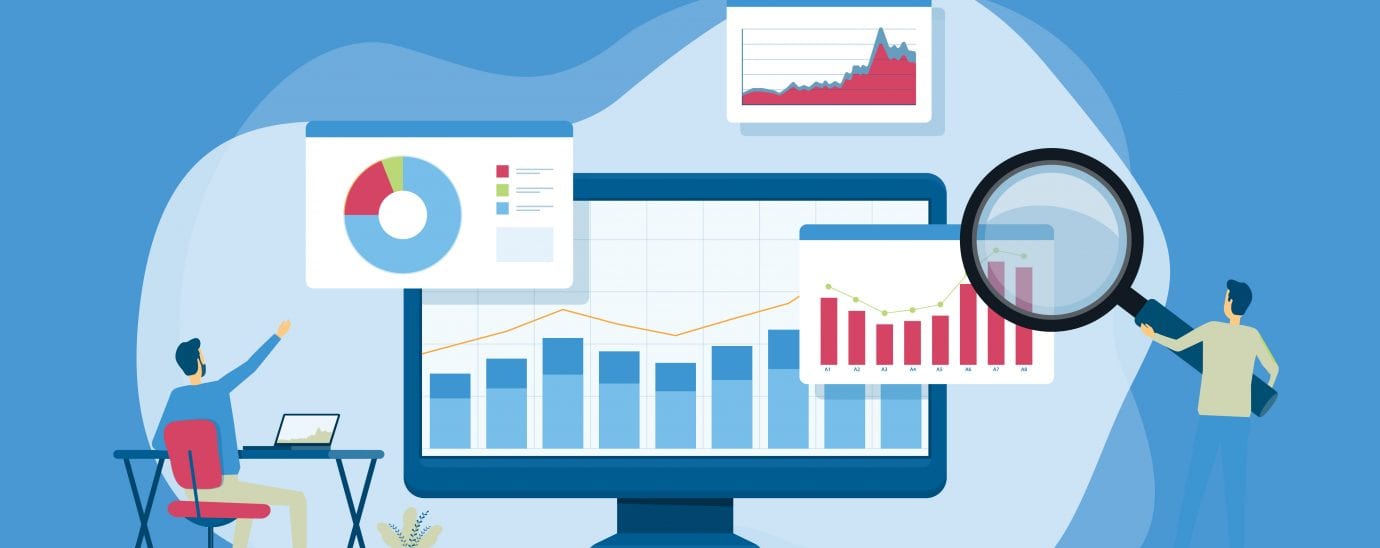Companies are sitting on a data goldmine and wasting it

Companies across the UK are increasingly looking for direct access to data to inform business decisions amidst a volatile market. However, many companies are still not accessing the entirety of the benefits that data can offer. Spencer Tuttle, VP EMEA at ThoughtSpot highlights why data apps are the future of data analytics and how companies can monetise data in new ways.
Emerging from the pandemic we have an economy in flux. All sectors are either becoming increasingly dependent on data to drive business success or are already faced with this challenge. Having data that provides clarity and insight into your industry and customers presents a clear value-add, but the waters become cloudier when the data is that of your customer or partner activity. This data is valuable, but many struggle to realise the full potential and how to operationalise something that is not directly tied to their business. This presents a unique opportunity to enable access for others who would benefit from industry insights, turning unused corporate data into a valuable asset and service for other firms.
You now have the opportunity to make your data work for your customers, partners, or the industry, adding value to their business, in the form of a data app. In essence, a data app is an interactive analytics function that you can incorporate into any app, product or service, providing external parties access to your valuable data and insights (safely and compliantly). The opportunity to monetise this ecosystem is vast.
This is incredibly valuable but is often thought of as having a high barrier to entry. Too often, the technical complexity required to surface and explore that data for additional analysis prevents users from doing so, but this is no longer the case. Powered by a cloud data warehouse you or your customers can easily build new data apps that are simple and easy to use. This gives you the unprecedented opportunity to monetise data in new ways, and allow your customers or other parties to harness data from right within existing tools – without having to learn new skills.
The data app use-case
For example, with theatres and live events set to reopen soon, ticketing companies will have a large amount of data revealing the number of people set to attend each event. While obviously incredibly useful to the theatre company, such data could also be extremely valuable to the other industries who work around them, such as local taxi companies or even street food vendors.
With access to the ticketing company’s data via the data app, the taxi organisation or food vendor would be able to predict and plan their service provision based on the data insights gained via the data app. They could ensure the right number of employees are on shift at the right times or plan to remain open for longer if they knew there would be increased demand.
It’s basic collaborative consumption. Both companies can share the data and gain value from doing so. It can be done securely and maintaining individual customer privacy.
A new frontier for data access
At a time when access is key, low-code solutions benefit everyone across the board from the developers building the data apps to the end-user gaining valuable insights from the data they now have easy access to. For accessing data and applying powerful analytics, ease of use from both ends of the data funnel is vital. Low-code solutions allow your company to build data apps quickly without the painstaking and resource-intensive process that has historically been required. Customers can spend less time building and maintaining analytics in their offerings, and more time iterating on features and capabilities that delight their users.
This allows the customisation and personalisation for the third parties (or in effect, your new data customers), helping them to analyse and access the data that best meets their needs. This is a fundamental feature of data apps. Providing immediate access to data in real-time provides far greater value than the alternative outdated and slow methods of working.
Beyond access
End users can go beyond the traditional, static dashboards that have become stale. Instead, they can endlessly explore and interact with data through embedded analytics. They can use custom pre-built features such as reports and alerts – they can find the answers they want to.
With AI capabilities that are part of the data apps themselves, the system can go further, automatically monitoring the underlying data to flag relevant changes, without users having to spend time sourcing the data.
READ MORE:
- Scaleup Spotlight: Climeworks is the key to fighting climate change
- How Wi-Fi6 will optimise hybrid working
- Which European countries have the best and worst cybersecurity?
- McAfee: How to make telehealth safer for a more convenient life online
You are now able to monetise your first-party data in another way. This is the crux of the data app proposition. By providing access via an easy-to-use custom-built service, your new kind of customer gains mass value from the insights they can now utilise, gaining a competitive advantage and improving business efficiency.
For more news from Top Business Tech, don’t forget to subscribe to our daily bulletin!
